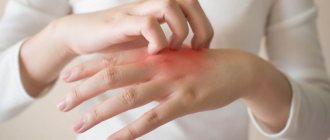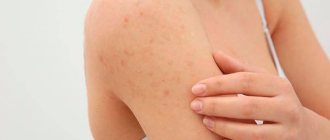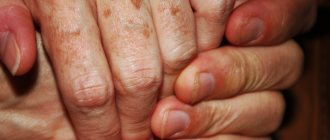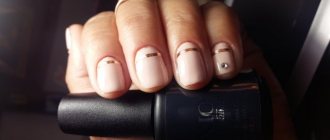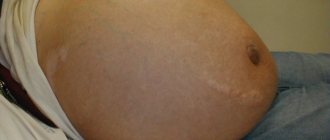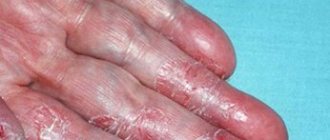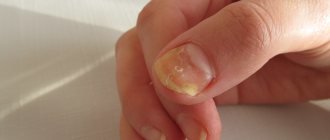Last update: 02/21/2021
Aquagenic urticaria is a rare, atypical reaction of the immune system that occurs in response to any human contact with water.
. It cannot be considered a disease in the usual sense of the word. No matter how unrealistic it may seem (after all, the human body is approximately 60% water), sometimes the immune system rejects it. It does not matter how exactly the liquid enters the body - be it through drinking, swimming in a pond, daily hygiene procedures, or even tears and sweat.
Let's figure out whether there could be an allergy to water (photos of its symptoms are given below), how it manifests itself and what can be done to treat this extremely unpleasant reaction of the body.
Allergy to water: symptoms
General symptoms that appear after skin contact with water look something like this:
- sensations of discomfort, dryness and tightness of the skin;
- itching and redness of the skin of varying degrees of intensity;
- in rare cases - nausea, vomiting, diarrhea, headache.
There is no need to panic about this, so as not to aggravate the situation. In the vast majority of cases, such allergic reactions do not pose a threat to life and go away on their own over time, without the use of medications.
How does an allergy to chemicals manifest?
In direct contact with household chemicals (washing powder, bleach, stain removers, etc.), redness and a rash accompanied by itching may appear on the skin. The skin is usually dry, there may be areas of peeling and cracks.
If allergens enter the respiratory tract (aerosols, spray detergents, etc.), nasal congestion, sneezing, excessive nasal discharge, watery eyes, red eyes, and sore throat may occur. In more severe cases, there are attacks of difficulty breathing, accompanied by a painful dry cough.
Allergy to cold water
There is no diagnosis of “cold water allergy”. If you experience an allergic reaction after contact with cold or cool water, most likely you are talking about a “cold allergy”. It manifests itself in the form of a reddish rash (usually on the skin of the face and hands). In this case, doctors talk about the so-called cold urticaria. After a few days, the spots begin to crack, then crusts form on them, which then peel off.
You can learn more about the rules of nutrition and the principles of forming a reasonable diet in a
7-module certification course in dietetics and nutrition from leading nutritionist Oleg Iryshkin.
Recommendations and treatment
At the first signs of an allergy, you should consult a doctor and strictly follow his instructions.
The doctor’s very first recommendation is to eliminate or reduce contact with the allergen.
In order to minimize the possible allergic consequences of using household chemicals, you must follow simple precautions:
- When cleaning, use household chemicals only when necessary.
- Buy household chemicals labeled “hypoallergenic”, “for sensitive skin”, “for washing children’s clothes”. Although in this case the allergy cannot be completely avoided, its manifestations will be minimal. It is recommended to use products in which the proportion of surfactants does not exceed 5%.
- Work with household chemicals only with gloves, use protective hand cream.
- After using chemicals, be sure to ventilate the room and thoroughly wash your hands and eyes.
- Avoid hand washing with powder - use soap instead.
- Machine wash on an extra rinse cycle.
- Better use gels instead of powders and aerosols. This will prevent allergen dust particles from entering the respiratory tract.
- Ventilate your home more often, not allowing chemical vapors from the household chemicals you use to stagnate in the air.
If even when using “hypoallergenic” household chemicals, symptoms of an allergy to chemicals still persist, you should remember well-forgotten natural remedies:
- lemon juice - removes rust, scale, is used when washing windows and to remove stains from clothes, porcelain and cutlery;
- table vinegar - removes scale, stains, disinfects, cleans tiles;
- salt - used for washing dishes, cleaning the soleplate of the iron;
- mustard - used for washing woolen items;
- baking soda - used for washing dishes and removing stains from furniture upholstery.
How are allergies to chemicals treated?
To relieve allergy symptoms, your doctor may prescribe antihistamines (for example, Cetrin ® ). In the future, it is advisable to keep these medications on hand - unfortunately, the allergic reaction may recur.
To treat local skin manifestations, the doctor may recommend external ointments or creams containing glucocorticosteroids, as well as skin softening substances. For respiratory manifestations of allergies, topical glucocorticosteroids, cromones, and bronchospasmolytics can be added to the treatment regimen.
Following these recommendations and following your doctor’s orders will help you significantly reduce your symptoms or completely get rid of allergies to household chemicals.
Allergy to chlorinated water
People often experience allergies to chlorinated water after visiting swimming pools, where this method of water disinfection is also used.
Chlorine, or bleach, in high concentrations is a toxic compound that irritates the skin and mucous membranes. Manifestations of the reaction are always individual: from minor rashes to dangerous conditions (the latter is rare). Usually the reaction occurs quickly, almost immediately after contact with chlorinated water, but in some cases there is a gradual accumulation of the allergen in the body and on the skin. The symptoms observed are as follows:
- skin rashes like wet, itchy blisters (urticaria);
- a feeling of severe itching and burning at the site of the rash;
- peeling of the skin;
- if bleach gets into the eyes, conjunctivitis appears;
- Allergic rhinitis may develop.
Free consultation on training issues
Our consultants are always ready to tell you about all the details!
Allergy to hot water
As with any tap water, an allergy to hot water occurs due to some substance in its chemical composition. The skin may turn sharply red, itching and burning appear, and after two to three hours the symptoms disappear without a trace.
It is known that a whole range of different means are used to treat water entering the water supply. In this regard, it is impossible to predict how the body of a particular person will react to them. The way out of the situation is to conduct a laboratory test and take action after you find out the exact cause of the allergic reaction.
Experts' opinion
The conducted clinical study proves the high efficiency, safety and tolerability of products for daily skin care of children with mild and moderate forms of atopic dermatitis and during remission, accompanied by a decrease in the quality of life of patients. As a result of therapy, a decrease in the activity of the inflammatory process, a decrease in dryness, itching and flaking was noted.
It has been proven that La Cree cream for dry skin:
- eliminates dryness and flaking;
- retains the skin's own moisture;
- protects skin from wind and cold.
Sources:
- I.A. Gorlanov, L.M. Leina, I.R. Milyavskaya, Skin of newborns: differential diagnosis of pathological conditions, features of care https://cyberleninka.ru/article/v/kozha-novorozhdennyh-differentsialnaya-diagnostika-patologicheskih-sostoyaniy-osobennosti-uhoda
- N.D. Odinaeva, G.V. Yatsyk, I.A. Belyaeva Correction of dry skin in newborns, Pediatrics journal, 2011 https://cyberleninka.ru/article/v/korrektsiya-suhosti-kozhi-u-novorozhdennyh-detey
- B.A. Shamov, I.G. Safiullina, A.B. Beshimova, T.B. Shamov, Differential diagnosis of atopic dermatitis, journal of Practical Medicine, 2011 https://cyberleninka.ru/article/v/differentsialnaya-diagnostika-atopicheskogo-dermatita
- Fokina R.A., Atopic dermatitis: stages of development of classification forms, Siberian Medical Journal, 2007 https://cyberleninka.ru/article/v/atopicheskiy-dermatit-etapy-razvitiya-klassifikatsionnyh-form
Allergy to tap water
An allergy to tap water can occur due to the content of certain chemical compounds in it. It happens that a person, for example, changed his place of residence or went on vacation, and after contact with “new” water he developed symptoms of allergic skin irritation. In most cases, the body gradually gets used to the changes and the symptoms disappear. However, in some cases the condition deteriorates, then care should be taken to have employees of a special laboratory examine the water and determine what substances it contains.
Am I in conflict with nature?
Most people who experience rare forms of allergies cannot correctly identify their condition for a long time, because in comparison with food and plant allergies, such manifestations are extremely rare, so little is said about them. Only by contacting an experienced allergist or immunologist can one identify the key factor causing hypersensitivity in one form or another in the patient.
After conducting a series of diagnostic tests, the specialist makes a diagnosis, but patients in such a case are more interested in why this is happening to them - after all, millions of people around do not experience any difficulties when coming into contact with sunlight, temperature changes and water.
The causes most often are immune disorders, which force the body’s protective cells to intensively fight any external influences. The second most common factor is hormonal imbalance and prolonged exhausting physical activity.
Allergy to dill water
Dill is a useful spice that is used not only for preparing various dishes. It has long been known to people as an effective folk remedy used for intestinal colic in young children. Unfortunately, some babies have an allergic reaction to dill. One of the reasons for the reaction is that this plant draws all the substances from the ground. If the place where dill grows is contaminated, harmful elements entering the human body can cause persistent allergies.
By the way, dill contains several types of acids (for example, oleic, palmitic and linoleic), which are difficult for the child’s body to absorb. Children may react to dill water with the following symptoms:
- red rash all over the body;
- itching, swelling of the mucous membranes;
- headache (but they can’t talk about it).
Typical places for rashes are cheeks and arms.
Allergy to micellar water
Women love to use micellar water for skin care before applying cosmetics and even for medicinal purposes when the skin on their face becomes too dry. Micellar water in its pure form usually does not cause allergies, since its composition is balanced and safe. However, some manufacturing companies sometimes add extracts of various plants and even oils to it. They are precisely the powerful “provocateurs” of allergies, especially when it comes to sensitive and delicate skin.
Before purchasing micellar water, you should more carefully familiarize yourself with the substances included in its composition. Persistent skin itching after applying it to the face may occur due to the influence of bromides and glycerin.
“La-Cri” products to improve the condition of skin with allergies from water
Since dryness is one of the most common symptoms of water allergy on the hands (as well as on other parts of the body), it is important to ensure adequate nutrition and hydration of the skin. To do this, it is recommended to use La-Cri intensive cream for dry skin. Shea butter, jojoba and wheat germ, natural extracts of licorice, chamomile and violet, as well as allantoin and lecithin ensure a rapid restoration of the protective properties of the skin, which leads to the elimination of dryness, rashes and redness. However, we must not forget that the treatment of aquagenic urticaria cannot be carried out only with cosmetics - they can only complement the main therapy, but not replace it completely.

